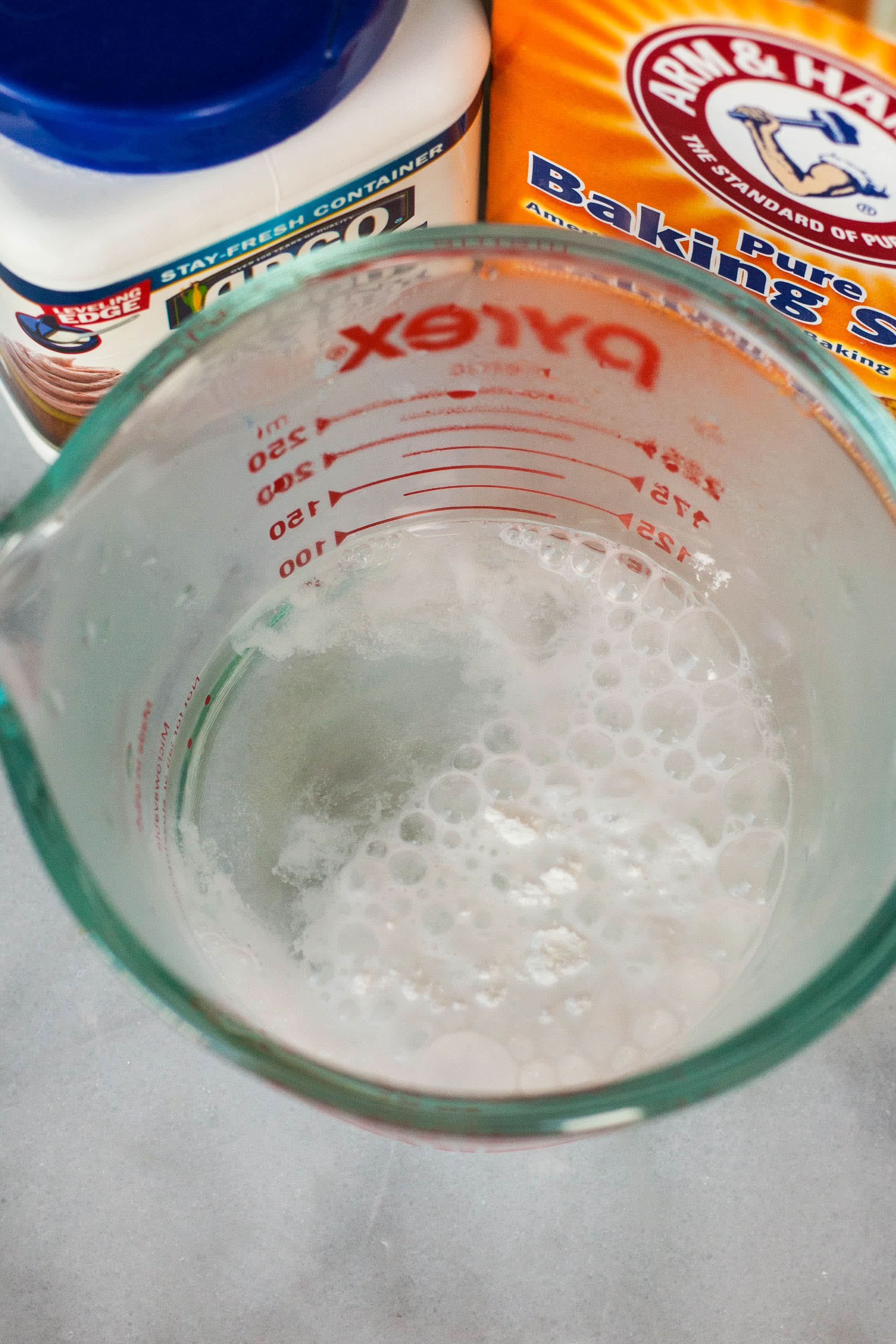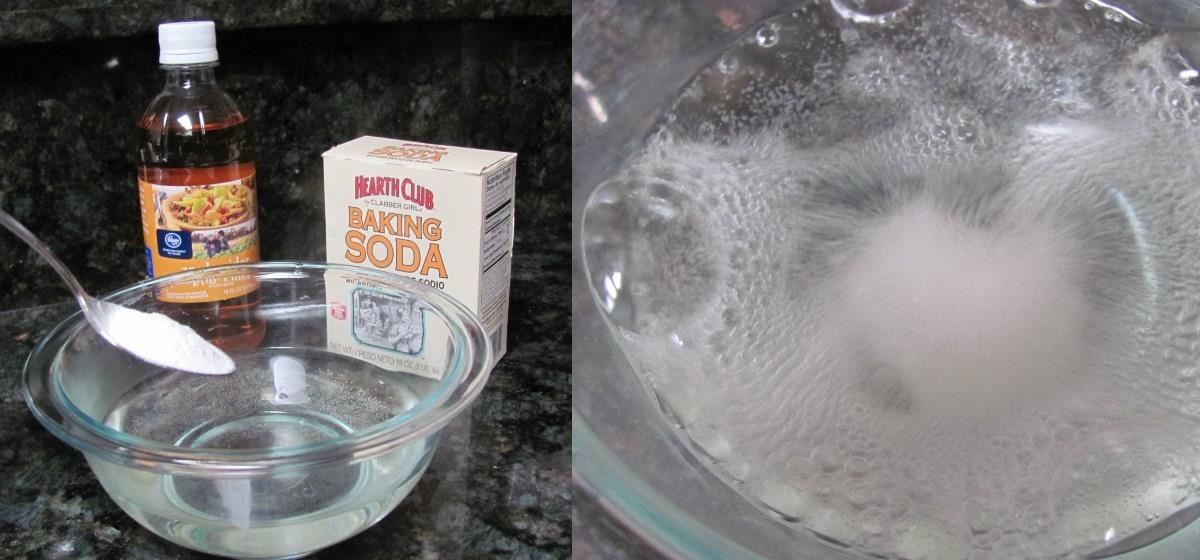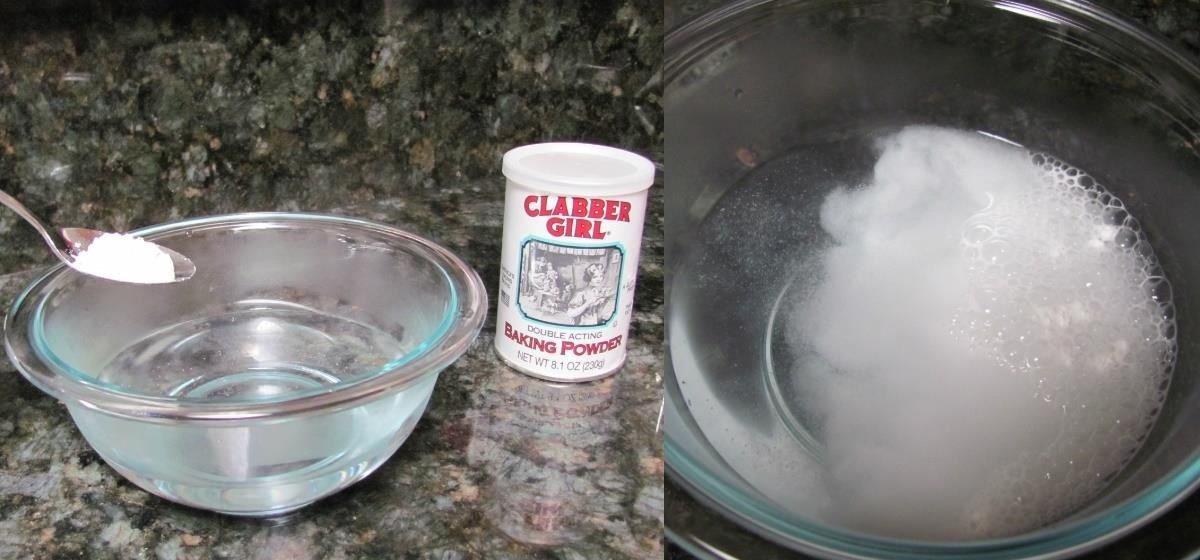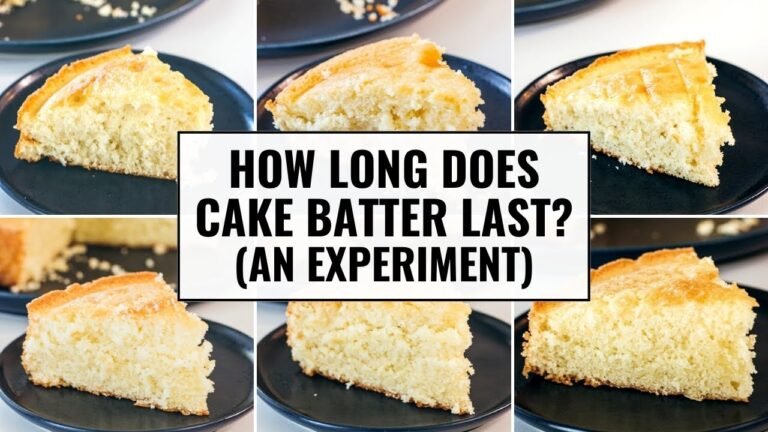How Do You Know If Baking Powder is Still Good? Quick Test Tips!
To check if baking powder is still good, mix a teaspoon with warm water. If it bubbles vigorously, it’s still active.
Baking powder is a crucial ingredient in baking, helping your recipes rise and achieve the perfect texture. Over time, however, baking powder can lose its potency, leading to flat cakes and dense cookies. Knowing how to test its freshness can save you from baking disasters.
Many home bakers wonder how long their baking powder lasts and what signs to look for. Understanding these factors can enhance your baking experience and ensure delicious results. With a simple test, you can determine whether your baking powder is ready to work its magic in your kitchen. Keep your baking on point by regularly checking your supplies!

The Shelf Life Of Baking Powder
Baking powder is essential for fluffy cakes and biscuits. Knowing its shelf life helps ensure your baked goods rise properly. Unused baking powder can lose potency over time. Understanding how long it lasts can save you from kitchen disasters.
Factors Affecting Potency
Several factors determine how long baking powder stays effective:
- Storage Conditions: Store in a cool, dry place. Moisture and heat can activate it prematurely.
- Container Type: Keep it in an airtight container. This protects against humidity.
- Frequency of Use: Frequent opening allows moisture in. This can shorten its life.
Expiration Dates: A Reliable Indicator?
Expiration dates are useful but not foolproof. Here’s a simple breakdown:
| Type of Baking Powder | Shelf Life |
|---|---|
| Opened Baking Powder | 6 months |
| Unopened Baking Powder | 2 years |
Check the date on the package. If it’s expired, test its potency before use.
To test, mix one teaspoon of baking powder with hot water. If it bubbles vigorously, it’s still good.

Signs Of Expired Baking Powder
Baking powder is essential for fluffy baked goods. Knowing its shelf life is key. Here are the signs that your baking powder has expired.
Visual Clues
Check for these visual signs:
- Color Change: Fresh baking powder is usually white. Look for any discoloration.
- Clumping: Baking powder should be loose. Clumps indicate moisture.
- Packaging Damage: Ensure the container is intact. Damaged packaging can lead to contamination.
Odor And Taste Changes
Smell and taste are good indicators:
- Faint Smell: Fresh baking powder has no strong smell. A sour odor means it’s bad.
- Unpleasant Taste: A taste test can help. If it tastes off, don’t use it.
Always trust your senses. Fresh baking powder helps your recipes rise beautifully.
The Water Test: A Simple Experiment
The water test is an easy way to check if your baking powder is still good. It only takes a few minutes. This simple experiment reveals if the powder can still create that light and fluffy texture in your baked goods.
Step-by-step Guide
- Gather your materials:
- 1 teaspoon of baking powder
- 1/3 cup of warm water
- A small bowl
- Mix the baking powder:
Combine the baking powder and warm water in the bowl.
- Observe the reaction:
Watch for bubbles or fizzing. This shows that the baking powder is still active.
Interpreting Results
| Observation | What It Means |
|---|---|
| Lots of bubbles and fizz | Baking powder is good! |
| Few or no bubbles | Baking powder is expired. Replace it. |
This quick test helps ensure your baking powder works. Enjoy your baking adventures with confidence!
Acid Test: Reactivity With Vinegar
Testing baking powder’s freshness is simple. The vinegar test helps determine if your baking powder is still effective. This test reveals if it can produce bubbles, indicating it is good to use.
Performing The Vinegar Test
Follow these easy steps to perform the vinegar test:
- Gather your materials: baking powder and vinegar.
- Take a small bowl or cup.
- Add one teaspoon of baking powder to the bowl.
- Pour in one tablespoon of vinegar.
- Observe the reaction closely.
What To Look For
During the test, watch for the following:
- Strong fizzing: Indicates fresh baking powder.
- Minimal fizzing: Shows it is losing potency.
- No fizz: Means it’s time to replace it.
Here’s a quick reference table:
| Result | Action |
|---|---|
| Strong fizzing | Use the baking powder |
| Minimal fizzing | Consider replacing it soon |
| No fizz | Dispose and buy new |
Perform this test regularly. Ensure your baked goods rise perfectly every time.
The Heat Test: Using Your Oven
Testing baking powder’s freshness is easy. The heat test is reliable. It checks if your baking powder can still provide lift. Here’s how to do it.
Setting Up The Test
Follow these steps to set up your heat test:
- Preheat your oven to 350°F (175°C).
- Gather a small bowl and a tablespoon.
- Measure 1 tablespoon of baking powder.
- Add 1/3 cup of hot water to the bowl.
- Mix the baking powder with the hot water.
Watch carefully as you mix. The mixture should bubble vigorously. This shows your baking powder is still effective.
Evaluating The Outcome
Check the reaction closely:
| Reaction | Result |
|---|---|
| Strong bubbling and fizzing | Fresh baking powder |
| Weak bubbling | Expired or ineffective baking powder |
| No reaction | Discard the baking powder |
Remember, effective baking powder is crucial for your recipes. Always check it before you start baking.

Baking Test: The Ultimate Proof
Is your baking powder still good? The baking test offers a simple way to find out. This test shows if your baking powder can still help your recipes rise.
Selecting A Recipe
Choose a recipe that requires baking powder. Here are some great options:
- Pancakes
- Quick breads
- Muffins
- Cakes
Make sure the recipe uses a specific amount of baking powder. This helps you see how well it works.
Assessing The Baked Product
After baking, check your product closely. Use these tips to assess its quality:
- Height: Is it fluffy and tall?
- Texture: Is it light and airy?
- Color: Does it have an even golden brown?
- Taste: Is the flavor balanced and pleasant?
Any issues in these areas may mean your baking powder is expired.
Keep an eye on the rise. If your baked goods fall flat, toss the old baking powder.
Storing Baking Powder Correctly
Proper storage of baking powder keeps it fresh and effective. Baking powder can lose potency over time. Storing it correctly helps maintain its leavening power. Follow these tips to ensure your baking powder stays good for longer.
Ideal Storage Conditions
Keep baking powder in a cool, dry place. Avoid areas with moisture or heat. Here are the best conditions:
- Temperature: Between 50°F and 70°F (10°C to 21°C)
- Humidity: Low humidity is crucial
- Light: Store in a dark area
Container Tips
The right container keeps baking powder fresh. Consider these container tips:
- Use an airtight container.
- Avoid glass containers that can break.
- Label the container with the purchase date.
- Keep it away from strong odors.
Following these tips helps ensure the longevity of your baking powder. Check the container regularly for any signs of moisture or clumping.
When To Replace Baking Powder
Baking powder is essential for fluffy baked goods. It can lose its potency over time. Knowing when to replace it ensures your recipes rise perfectly.
Regular Maintenance
Regularly check your baking powder. Follow these simple steps:
- Check the expiration date on the package.
- Store it in a cool, dry place.
- Seal it tightly after each use.
Replace baking powder every six months for best results. This keeps it fresh and effective. Always write the purchase date on the container.
After Testing
Testing baking powder is easy. Here’s how:
- Take a small amount of baking powder.
- Add it to a bowl with hot water.
- Look for fizzing bubbles.
Strong fizz means it’s still good. Little or no fizz means it’s time to replace it.
| Status | Action |
|---|---|
| Strong fizz | Keep using it |
| Little or no fizz | Replace with new baking powder |
Frequently Asked Questions
How Can I Test Baking Powder Freshness?
To test your baking powder’s freshness, mix a teaspoon with hot water. If it bubbles vigorously, it’s still good. If it doesn’t react, it’s time to replace it. Always store baking powder in a cool, dry place for optimal shelf life.
What Happens If Baking Powder Is Expired?
Using expired baking powder can lead to flat baked goods. The leavening agent may not produce the necessary rise. This can result in dense cakes or cookies. Always check the expiration date before using it in your recipes.
How Long Does Baking Powder Last?
Unopened baking powder typically lasts about 2 to 3 years. Once opened, it should be used within 6 months to a year. Always check the packaging for specific expiration dates. Proper storage can help extend its shelf life significantly.
Can I Use Baking Powder After The Expiration Date?
You can use baking powder past its expiration if it’s still active. Conduct the freshness test to ensure it bubbles when mixed with water. If it reacts, it’s safe to use. However, for best results, consider replacing it for optimal baking.
Conclusion
Baking powder is essential for successful baking. Regularly check its expiration date and perform the simple tests mentioned. Fresh baking powder ensures your baked goods rise perfectly and taste delicious. By following these tips, you can confidently use baking powder and enjoy delightful results in your kitchen.
Happy baking!



